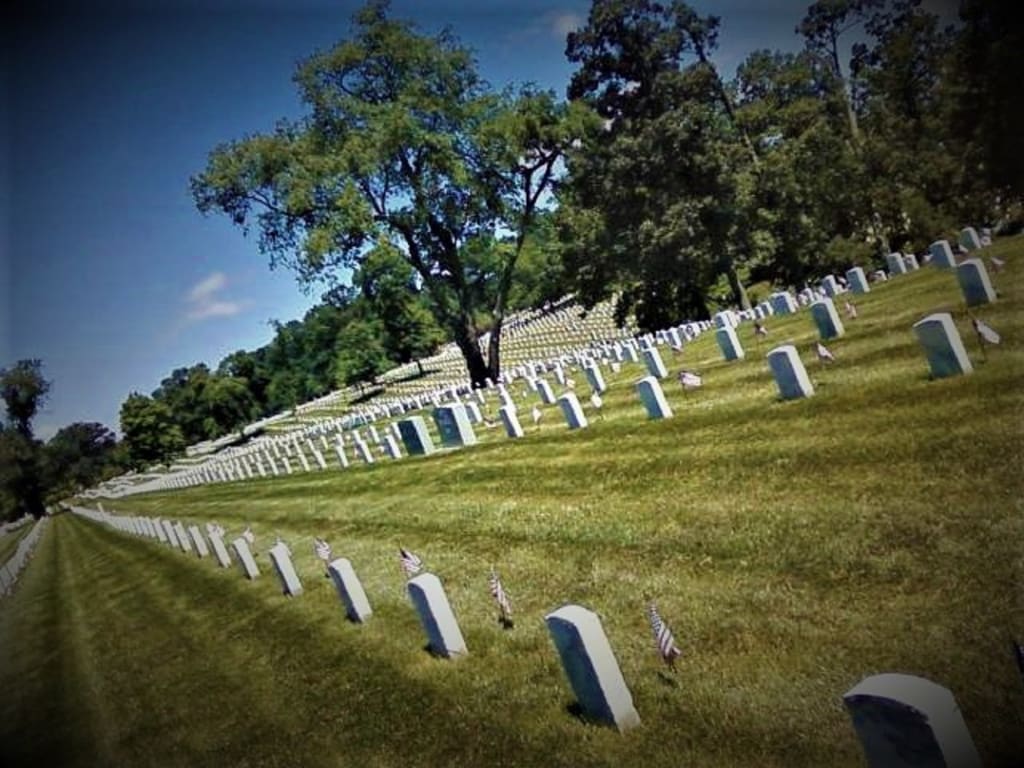Don't Thank a Veteran on Memorial Day
Remember those who died

As Memorial Day approaches, we begin to see the annual onslaught of advertising for Memorial Day sales on everything from automobiles to hot dogs. In the past few years, more and more of that advertising seems to include references to honoring veterans and thanking those who serve.
That’s all well and good, but Memorial Day is not the time to celebrate living veterans.
We have Veterans Day.
Memorial Day, which was originally known as Decoration Day, is intended to honor those individuals who lost their lives while serving in the United States Armed Forces.
A little history
The original name came from the practice of decorating graves with wreaths of flowers and flags. On May 5, 1868, Decoration Day was set as the time for everyone in the United States to decorate the graves of the war dead. Major General John A. Logan, a veteran of the Mexican-American War and the third commander of a veteran’s organization called the GAR (Grand Army of the Republic) was instrumental in establishing the day. He declared May 30 as the day for this, likely because flowers would be in bloom across the country by that date.
The first Decoration Day took place on May 30, 1868. On that date, Ohio Congressman and Union veteran of the Civil War, James Garfield, gave a speech at Arlington National Cemetery. After the speech, more than five thousand people helped decorate the graves. At that time, more than 20,000 soldiers, both Confederation and Union, were buried at Arlington.
While the first Decoration Day was a national event to honor and remember fallen soldiers, there had been many local observations throughout the US honoring those who had died in the Civil War. One such gathering took place in Charleston, South Carolina on May 1, 1865. It was organized by freed slaves in an effort to honor Union troops.
Another early commemoration occurred in Columbus, Mississippi on April 25, 1866. A group of women were decorating the graves of Confederate soldiers who had died at the battle at Shiloh. There were graves of Union soldiers nearby, which had been neglected since they were the enemy. The women were saddened by the sight, and put flowers on those graves as well.
Although there had been the ceremony in Charleston in May of 1865, another event also took place in Waterloo, New York on the same day. At the Waterloo event, businesses were closed and flags were flown at half-staff. It was this event that prompted Congress and President Lyndon Johnson to declare Waterloo the “birthplace” of Memorial Day in 1966. According to a Department of Veteran Affairs report, those who support Waterloo’s claim say earlier observances in other places were either informal, not community- wide or one-time events.
New York was the first state to designate Memorial Day as a legal holiday in 1873, and by the end of the 19th century, many states had declared it a legal holiday. After World War I, Memorial Day became a time to honor the dead of all of America’s wars. This was the beginning of it being observed as a national holiday.
Congress passed the Uniform Monday Holiday Act in 1971. At this time, Memorial Day was set as the last Monday in May. Every year, a ceremony takes place at Arlington National Cemetery. The President or Vice President lays a wreath at the Tomb of the Unknown Soldier and a small American flag is placed on each grave.
This year President Joseph R. Biden Jr. will lay the wreath at the ceremony, which will be hosted by Major General Allan M. Pepin. General Pepin is the commanding general of Joint Task Force-National Capital Region and the U.S. Army Military District of Washington.
National Remembrance
In December 2000, “The National Moment of Remembrance Act,” P.L. 106–579, was signed into law. This act created the White House Commission on the National Moment of Remembrance. The commission’s charter is to “encourage the people of the United States to give something back to their country, which provides them so much freedom and opportunity” by encouraging and coordinating commemorations in the United States of Memorial Day and the National Moment of Remembrance.
The National Moment of Remembrance encourages all Americans to pause wherever they are at 3:00 pm local time on Memorial Day for a minute of silence to remember and honor those who have died in service to the nation. Carmella LaSpada, the founder of the Moment of Remembrance states: “It’s a way we can all help put the memorial back in Memorial Day.”
All the dead of all the wars
Like the women of Columbus, Mississippi in 1865, I look around the world and think of the dead soldiers of all the wars that have ever happened. I think of those who were “enemies,” dead and buried either at home or abroad, and I think they all need to be remembered. What better day to remember the sacrifices of all those who fought and died for what they believed to be right, or at the command of their leaders right or wrong, than the day we honor our own?
Bringing the memorial back to Memorial Day
Memorial Day doesn’t have to be all doom and gloom, but the reason we have the holiday weekend at all should be remembered. In the midst of your pool parties and your barbecues; in the midst of all the family fun and games, stop for a moment to remember why you are able to be there.
Remember the real sacrifices of those who fought — and died — in support of our country…of your country, wherever that is. Stop everything you’re doing at 3:00 pm your time and have a moment of silence.
Then go on with your fun. Just don’t thank a veteran.
At least, not because it’s Memorial Day.
(c) 5.24.2023 Suzy Jacobson Cherry
***
This story originally appeared on Medium
About the Creator
Suzy Jacobson Cherry
Writer. Artist. Educator. Interspiritual Priestess. I write poetry, fiction, nonfiction, and thoughts on stuff I love.
Enjoyed the story? Support the Creator.
Subscribe for free to receive all their stories in your feed. You could also pledge your support or give them a one-off tip, letting them know you appreciate their work.






Comments (1)
I'm not sure this belongs in Psyche, I made a mistake; however, it's been accepted and here it is. It doesn't belong in Serve, either, though.